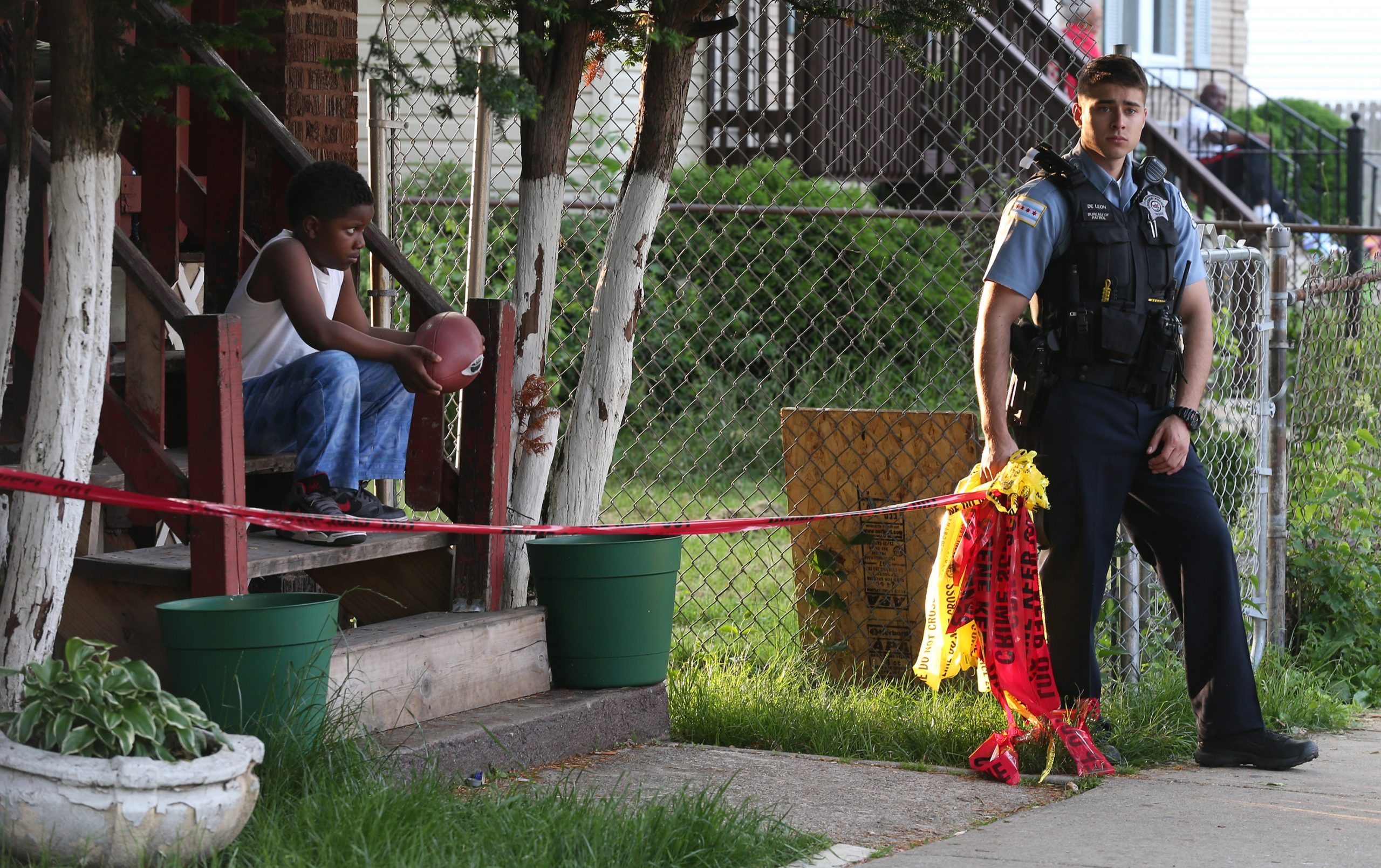Last November, Hillary Clinton went to Chicago to take a private meeting with women grieving unquiet deaths. The campaign brought in the mothers of Trayvon Martin, Michael Brown, Hadiya Pendleton — parents who had lost sons and daughters in high-profile killings perpetrated by vigilante citizens, police officers, and gang members — to talk about working with the candidate to bring attention to their individual causes.
At that Chicago restaurant back in November, the mothers asked Clinton what they could do to make sure their issues were heard.
Clinton advised the mothers to unify: “Well, I think you can continue to speak out, but you will be more effective if you do somehow band together, so that it’s a constant drumbeat.”
So it was that the “Mothers of the Movement,” as the women are now known, came to take the stage last night at the Democratic National Convention in Philadelphia.
The group of nine women included Geneva Reed-Veal, whose 28-year-old daughter Sandra Bland died in a jail cell after being taken into police custody following traffic stop. “When a young black life is cut short, it’s not just a personal loss. It is a national loss,” she told the delegates. Also on the dias was Lucia McBath, whose son, Jordan Davis, was shot and killed by a man who thought his music was too loud. “I still wake up every day thinking about how to parent him,” McBath said. “How to protect him and his legacy. How to ensure his death doesn’t overshadow his life.”
But in truth, long before they formally joined forces, the mothers were already linked as parents of victims of symbiotic social ills. The different forms of violence that killed their children are part of a pernicious cycle that connects racial injustice with the everyday gunfire that ends the lives of thousands of American minorities each year.
One spoke of the cycle is formed by widespread mistrust of law enforcement, a wariness fanned by each new police killing. One year after the death of Michael Brown incited protests and outrage in Ferguson, nationwide trust in police plummeted to a historic low. More benign forms of police misconduct, which statistics show that minorities disproportionately experience, also erode the belief that police treat communities of color fairly and act in a way that will keep those communities safe.
In academic-speak, the concept is known as police legitimacy, and its existence or absence is part of the larger picture of how communities of color perceive the institutions of criminal justice. Without confidence that laws will be applied equally to all kinds of Americans, legal cynicism – a cultural attitude regarding the whole system as ineffectual and ultimately illegitimate — pervades communities.
Just as misbehaving cops fuel that cynicism, so too do legal cases that reinforce the sense that one class of people is routinely denied justice. That sense grew after George Zimmerman, a neighborhood watch patrolman, was acquitted of murder charges in his fatal shooting of Martin, a 17-year-old African American boy. Black communities struggled to reconcile the aggressive, sometimes fatal policing of their own people with George Zimmerman’s freedom from punishment.
In a climate of mistrust, police officers and prosecutors face a dizzying degree of difficulty in managing violent crime in minority neighborhoods. People of color who have had or have witnessed negative interactions with the police are disinclined to cooperate with investigations, and without witnesses, authorities can’t identify or prosecute shooters. A system of street justice emerges to supplement the truncated sovereignty of law enforcement, often in the form of retaliatory gunfire. A neighborhood’s levels of police legitimacy and legal cynicism are incredibly strong predictors — stronger than poverty, even — of violent crime.
The cycle churns as police misbehavior and unjust court outcomes cause whole communities to stand at odds with law enforcement, which leads to additional unsolved gun crimes that residents redress with yet more gun crime. The Mothers of the Movement represent but a handful of the families that have met the death spiraling from these gears.
At the Democratic Convention on Tuesday night, Clinton’s team made sure that the women were joined on the schedule by other speakers who could emphasize that reducing killings of people of color was the cause of reformers in and out of office and on both sides of the badge. Speaking shortly before the moms, former Attorney General Eric Holder said, “There should be no tension between protecting those who valiantly risk their lives to serve and ensuring that everyone is treated fairly by police.” Next up was Pittsburgh Police Chief Cameron McLay, who underscored his department’s efforts to make residents feel both safe and respected, a tacit acknowledgment that the former becomes increasingly elusive when the latter is lacking.
In a fundamental way, legal cynicism is driven by a feeling of being overlooked, of bearing hidden plights. To be sure, there is a political calculus in bringing the Mothers of the Movement into the spotlight. But broadcasting their brief speeches into homes nationwide also carries the promise of real progress. “I lived in fear that my son would die like this,” McBath said in her remarks, during which she also spoke of the conversations that she and Jordan used to have about their deep Christian faith. If law enforcement and criminal justice leaders continue to acknowledge the crisis of confidence that officers and courts are operating under, and people in the communities most victimized by violence begin to trust that police and prosecutors will provide recourse, the conditions for change may yet take root.
[Photo: Chip Somodevilla/Getty Images]


